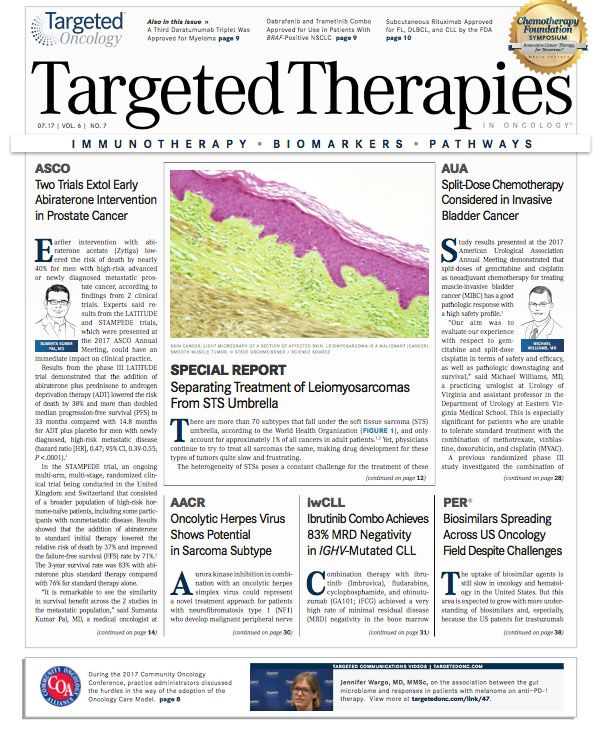Results from PART Feasibility Study Endorse Development of Full Trial
Based on results of a feasibility study, researchers in the United Kingdom have decided to move forward with a full randomized controlled trial comparing partial prostate ablation (PA) with radical prostatectomy (RP) in patients with intermediate-risk prostate cancer, according to a presentation at the 2017 American Urological Association Annual Meeting.
The investigators have hypothesized that PA using minimally invasive therapies can achieve organ preservation, reduce adverse events (AEs), maintain good voiding and sexual function, and avoid compromise to oncological outcomes.
They said the phase III PART trial would be the first to compare PA and RP in the context of intermediate-risk, unilateral, clinically significant, localized prostate cancer, and that it has the potential to improve understanding of how to treat this disease. Previous studies have generally assessed these treatments in low-risk prostate cancer.
“When we were designing this study, the diagnostic pathway was a rapidly evolving process, so we tried to make a pragmatic design to allow us to move with the times by incorporating prostate MRI, targeted biopsies, and fusion biopsies within the study,” lead study author Tom Leslie, MB ChB, DPhil, a consultant urological surgeon of Oxford University Hospitals, said.
The feasibility study was set in 5 large urology clinics in the United Kingdom. Men were targeted who were amenable to PA or RP. “We were specifically looking [for those with] unilateral clinically significant intermediate-risk prostate cancerGleason grade 4 or higher,” Leslie added. Study participants also could have contralateral insignificant disease within the inclusion criteria.
The patients were diagnosed by multiparametric MRI, along with either a targeted biopsy or template prostate biopsy. The patients then were randomized to receive either partial PA or RP.
The investigators sought to achieve a randomization rate of 50% and collected data on quality-of-life (QoL) factors, primary treatment failure (defined as the need for whole gland ablation or secondary therapy), long-term AEs, disease progression, and disease-caused mortality. According to Leslie, they also paid attention to primary treatment failure with multiple focal therapy and later conversions to prostatectomy or radiotherapy.
The feasibility trial recruited the targeted 80 patients. Half of the patients initially considered for the feasibility study specifically wanted RP and therefore could not be randomized or included in the study. Others preferred brachytherapy, cryoablation, or chemotherapy, and also could not be included. “These were men who couldn’t be randomized because they knew what they wanted, and that’s perfectly fair,” Leslie commented.
In terms of QoL data, initial responses suggested that there are some potential health gains for patients who received PA compared with RP. However, in terms of essential function and QoL as time went on, there was no significant difference in patient perception.
Reference:
Leslie T, Davies L, Elliott D, et al. The PART triala phase III study comparing Partial prostate Ablation versus Radical prosTatectomy (PART) in intermediate risk prostate can- cer—early data from the feasibility study. Presented at: 2017 American Urological Asso- ciation Annual Meeting; May 12-16, 2017; Boston, MA. Abstract PD56-08. eventscribe. com/2017/AUA2017/.
